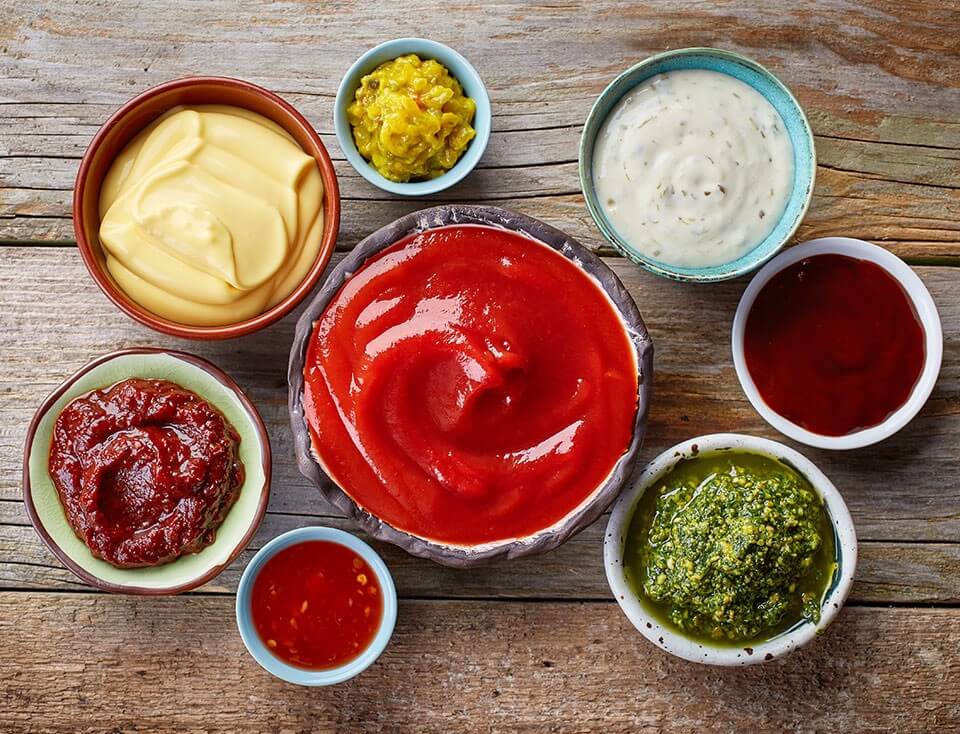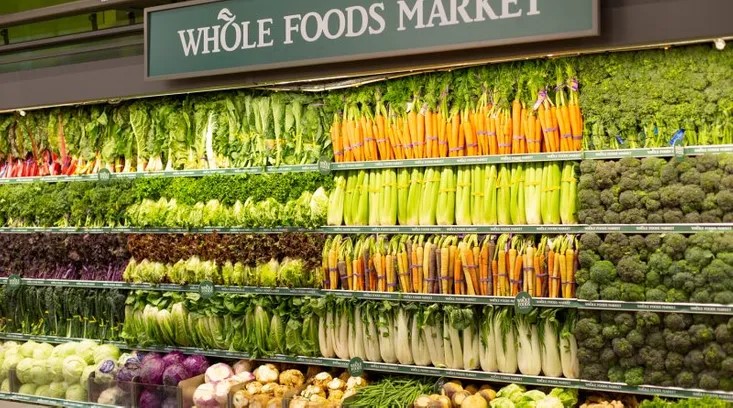13 Simple Ways to Stop Eating Extra Sugar
Excessive consumption of added sugar can be detrimental to your health.
The addition of sugar to sodas, sweets and other processed foods has been shown to contribute to obesity, type 2 diabetes, heart disease, cancer and caries. But do you know where and how much sugar you consume daily and how to stop it?
Research shows that most Americans eat 55-92 grams of “extra” sugar a day, which equates to 13-22 teaspoons of sugar each day – accounting for about 12-16% of their daily calorie intake.
A much higher percentage than nutritionists who recommend consuming less than 10% of our daily calories from added sugars.
The World Health Organization goes one step further, recommending less than 5% of calories from added sugar for optimal health.
However, reducing the added sugars in your diet can be very difficult.
Here are 13 simple ways to do it!
1. Limit sugary drinks

Most of the added sugars we consume come from sugary drinks – soft drinks, energy drinks, sweet teas and more.
In addition, drinks that many people consider healthy, such as smoothies and fruit juices, can contain staggering amounts of added sugar.
For example, 1 cup (271 grams) of cranberry juice cocktail contains more than 7 teaspoons of sugar (31 grams).
In addition, your body does not recognize the calories from drinks in the same way as it does from food. The calories from the drinks are absorbed quickly, resulting in a rapid rise in your blood sugar level.
Drinks also do not make you feel as full as solid foods, so people who consume a lot of calories from drinks end up eating more.
Reducing the intake of sugary drinks can help both in weight loss and in improving overall health.
Here are some healthier drinks that are naturally low in sugar:
• water
• unsweetened carbonated water
• herbal tea
• black or green tea
• coffee
• herbal tea to curb sugar cravings
2. Avoid sweets with sugar

Most desserts do not offer much nutritional value. They are full of sugar, which causes a sudden rise in blood sugar and can make you feel tired and hungry as well as lead you to constantly look for more sugar.
Cereal and dairy-based desserts, such as cakes, pies, doughnuts and ice cream, account for more than 18% of the added sugar intake in the diet.
So try the following alternatives instead:
• fresh fruits
• yoghurt with cinnamon or fruit
• baked fruit with cream
• dark chocolate (70% cocoa or higher)
And remember! Replacing sweets with fresh or baked fruit not only reduces your sugar intake but also increases the fiber, vitamins, minerals and antioxidants in your diet.
3. Avoid sauces with added sugar

Sauces such as ketchup, barbecue sauce, ready-made spaghetti sauce and sweet chilli sauce are very common in most kitchens. However, most people are not aware of their sugar content.
One tablespoon (17 grams) of ketchup contains about 1 teaspoon (5 grams) of sugar.
Look for “no added sugar” spices and sauces to reduce the hidden sugars in these products.
Other options for seasoning your food naturally low in added sugar are herbs and spices, chilli, mustard, vinegar, pesto, mayonnaise and lemon or lime juice.
4. Eat foods with normal and not low fat
Varieties of your favourite low-fat foods are everywhere.
If you’ve been told that fat is bad, it’s natural to look for these alternatives rather than full/normal fat/beverage foods — especially when trying to lose weight.
However, the worrying truth is that these foods usually contain more sugar and sometimes more calories than their full-fat counterparts.
For example, a serving of low-fat (170 grams) vanilla contains 24 grams of sugar and 144 calories.
The same amount of plain yoghurt full of fat contains only 8 grams of milk sugar and 104 calories.
High sugar intake has also been shown to cause weight gain, which negates the fact that you may have chosen low-fat foods that ultimately have more sugar.
When trying to reduce your sugar intake, it is often best to choose foods that are high in fat. Just be sure to read the list of ingredients to make the best choice.
5. Eat fresh or organic food

Fresh food has not been processed. They are also without additives and other artificial substances.
Such foods are fruits, legumes, whole grains, vegetables and non-frozen meat.
Processed or prepared foods contain salt, sugar, fat and additives to such an extent that they taste great – something that makes it difficult to moderate your intake of these foods.
Examples of highly processed foods are soft drinks, sweets, cereals, chips and ready-made/fast food.
Nearly 90% of the sugars added to the average American diet come from over-processed foods, while only 8.7% come from homemade foods using fresh raw materials.
Try to cook yourself when possible to avoid added sugars. You do not need to cook elaborate meals. Simple foods such as marinated meats, grilled vegetables and salads will give you great results.
6. Eat fresh or organic food
Canned foods can be a useful and inexpensive option in your diet, but they can also contain a lot of added sugar.
Fruits and vegetables contain natural sugars and do not affect your blood sugar in the same way that added sugar does.
Prefer them!
7. Be careful with “healthy” processed snacks
Some processed snacks have a “health halo”. They look healthy at first glance and words like “healthy” or “natural” can be used in their marketing to make them look more attractive than they really are.
Surprisingly, these snacks (such as granola bars, protein bars and dried fruit) can contain just as much sugar like chocolate and candies.
Dried fruits are a great example. They are full of fiber, nutrients and antioxidants. However, they also contain concentrated amounts of natural sugar (and some versions can be “sugared” with added sugar), so you should moderate their intake so as not to overdo it.
Here are some healthy ideas for low-sugar snacks:
• nuts and seeds
• boiled eggs
•fresh fruits
8. Limit cereals with sugar

Some breakfast cereals contain a lot of added sugar. A study found that some of the most popular brands of cereals contain more than half their weight in added sugar.
In addition, the same research found that granola, which is commonly marketed as a healthy food, has more sugar than any other cereal, on average.
Popular breakfast foods – such as pancakes, waffles, muffins and jams – are also loaded with added sugar.
So leave these sugary mornings for special occasions and try the following low-sugar mornings:
• oatmeal or oats with fresh fruit
• yogurt with fruit, honey and nuts
• omelette with cheese and vegetables
• avocado in wholemeal toast
Choosing low-sugar, high-protein, high-fiber foods for breakfast will also help you feel full by noon, avoiding unnecessary snacks.
9. Read the labels
Eating less sugar is not as easy as avoiding sugary foods. We have already said that it can be hidden in incredible foods such as ketchup and granola.
Fortunately, food manufacturers are now being asked to list added sugars on food labels. You will see the added sugars listed below the total carbohydrates in the foods that contain them.
Alternatively, you can check the list of ingredients for sugar. The higher the sugar in the list of ingredients, the more sugar the product contains, as the ingredients are listed from the highest amount to the lowest amount used by weight.
However, there are more than 50 names for adding sugar to food labels, which makes them more difficult to identify. Here are some of the most common:
• fructose from corn syrup
• cane sugar or cane juice
• maltose
• dextrose
• invert sugar or sugar syrup
• rice syrup
• molasses
• candy
10. Try to eat more protein
High sugar intake has been linked to increased appetite and weight gain. In contrast, a diet low in sugar but high in protein and fiber can have the opposite effect, reducing hunger and promoting a feeling of fullness.
Protein has also been shown to directly reduce the urge to eat. One study found that increasing protein in the diet by 25% reduced the desire to consume sugar by 60%.
To quench your sugar cravings, eat protein-rich foods such as meat, fish, eggs, high-fat dairy products, avocados and nuts.
11. Avoid natural zero-calorie sweetenersre protein
There are many artificial sweeteners on the market that are completely free of sugar and calories, such as sucralose and aspartame.
However, these artificial sweeteners can be linked to intestinal bacteria imbalances that can lead to poorer blood sugar control, increased appetite and weight gain. For this reason, it may be best to avoid artificial sweeteners.
Some other zero-calorie natural sweeteners such as stevia look promising, as they are naturally derived, although they undergo some processing before they reach your plate.
12. Limit high-sugar foods in your homero-calorie sweetenersre protein
When you have foods high in sugar at home, you are more likely to consume them. It takes tremendous willpower to stop yourself when it has decided to reach up to the cupboard or fridge to get a dessert.
However, if you live with others, this can be difficult. Studies have shown that our preoccupation with something else at the moment, such as making a puzzle, taking a yoga class on youtube, or going out for a walk, can be very effective in reducing the consumption of such foods.
If that doesn’t work, then try keeping some healthy low-sugar snacks at home for distraction !.
13. Get enough sleep

Good sleeping habits are incredibly important to your health. Poor sleep has been linked to depression, poor concentration, decreased immune function and obesity.
However, lack of sleep can also affect the types of food you eat, predisposing you to choices that are higher in sugar, fat, salt and calories.
Another study found that people who went to bed late and did not sleep through the night consumed more calories, fast food and soft drinks and correspondingly far fewer fruits and vegetables than those who went to bed early and had a good night’s sleep.
In addition, a recent observational study noted that a higher intake of added sugar was associated with an increased risk of insomnia in postmenopausal women.
If you are trying to stop making high-sugar food choices, better sleep can help.

